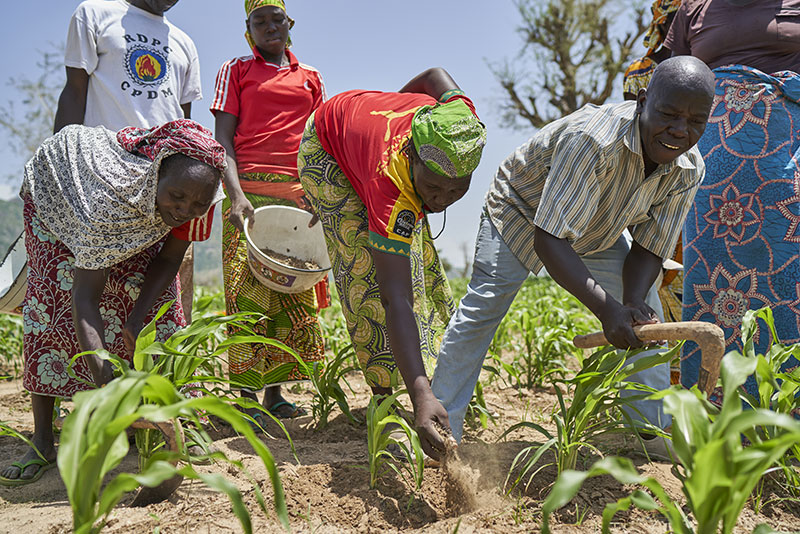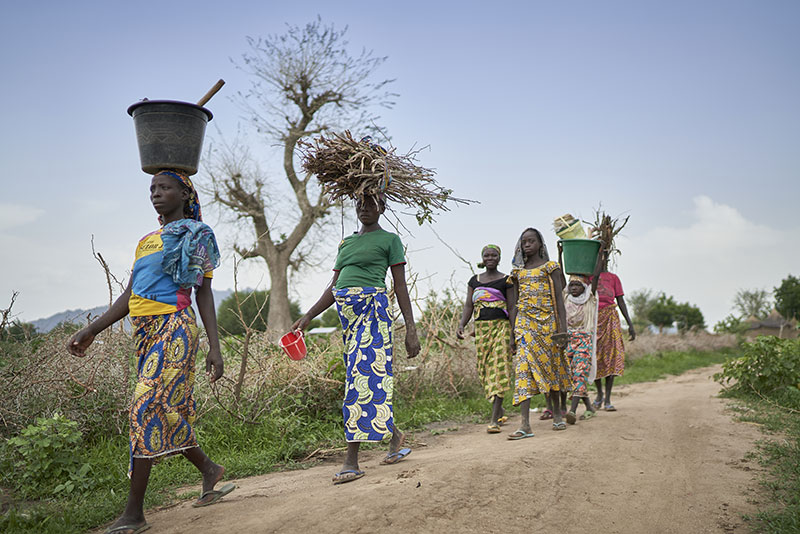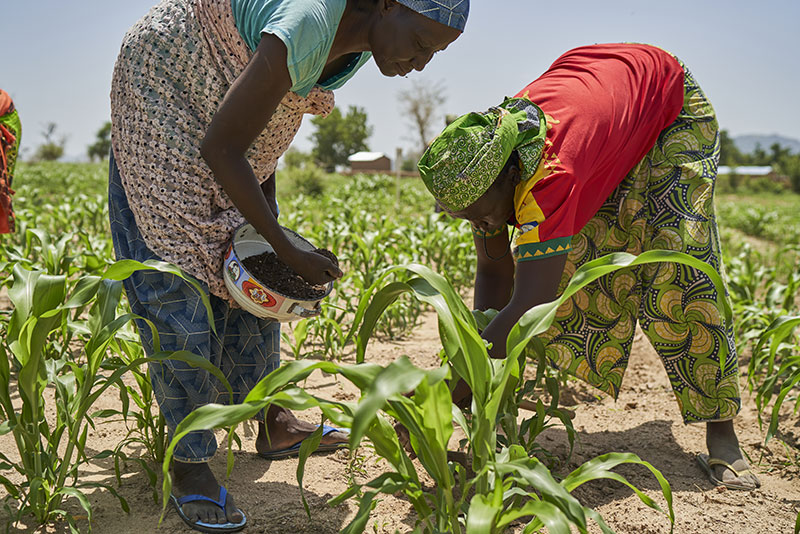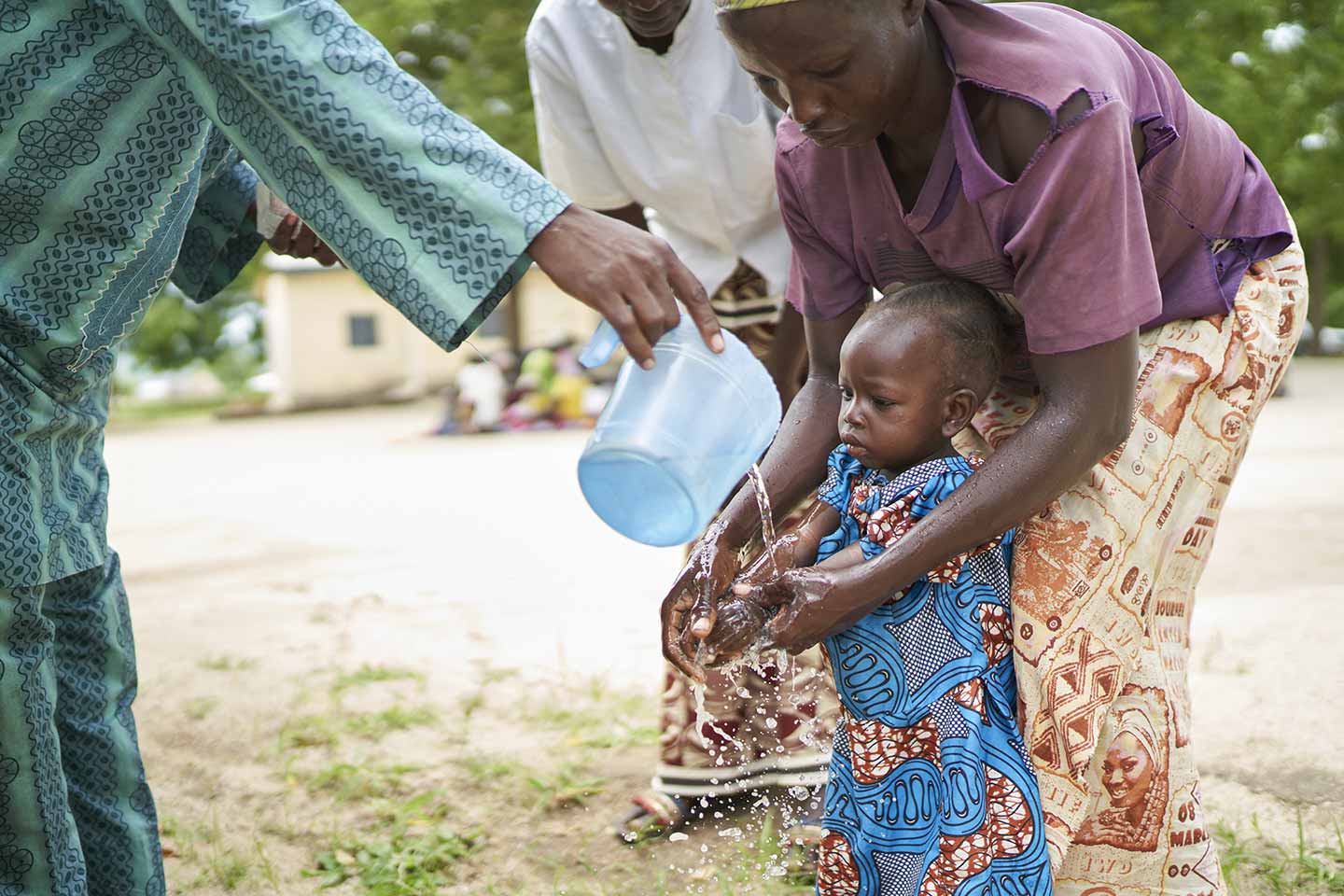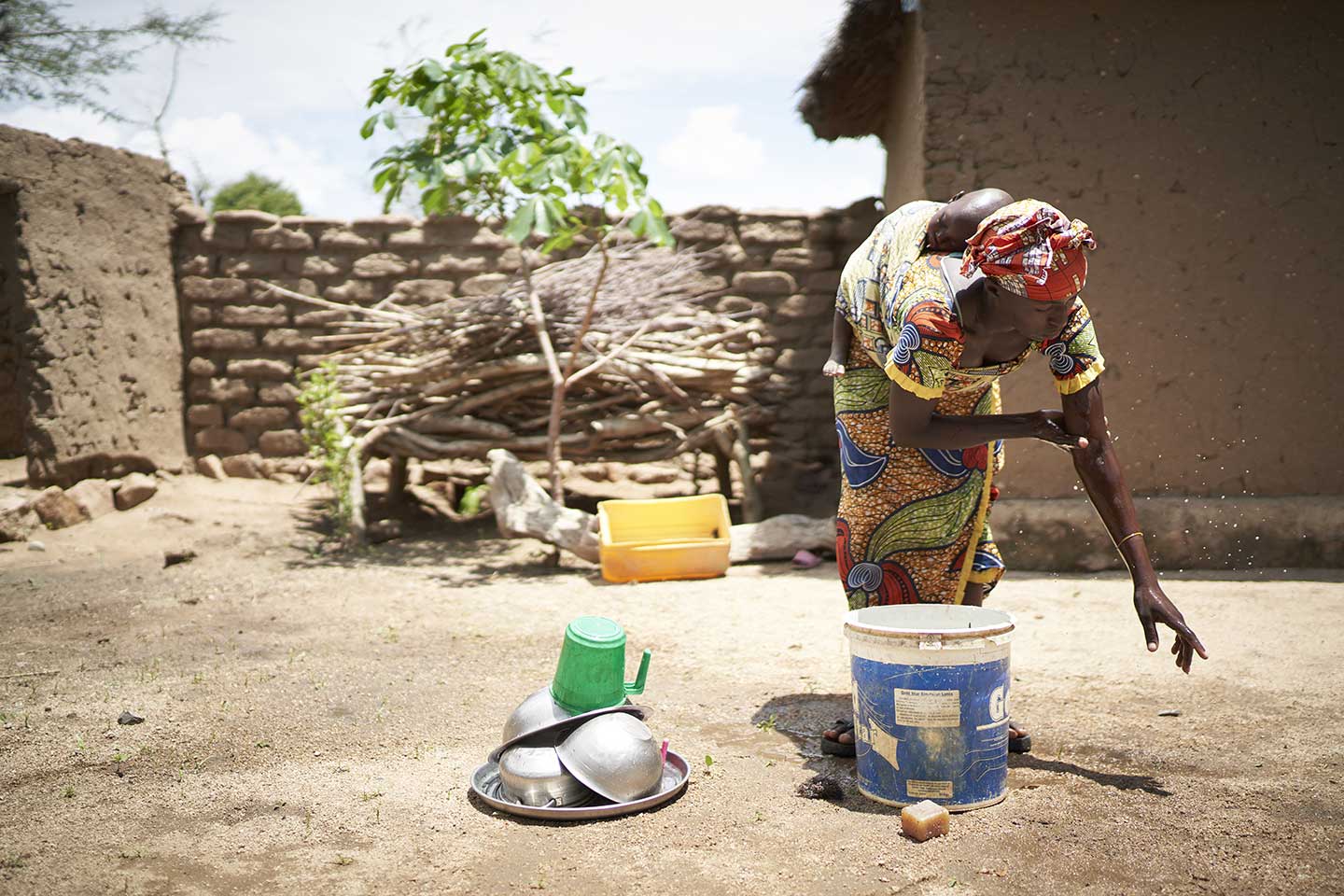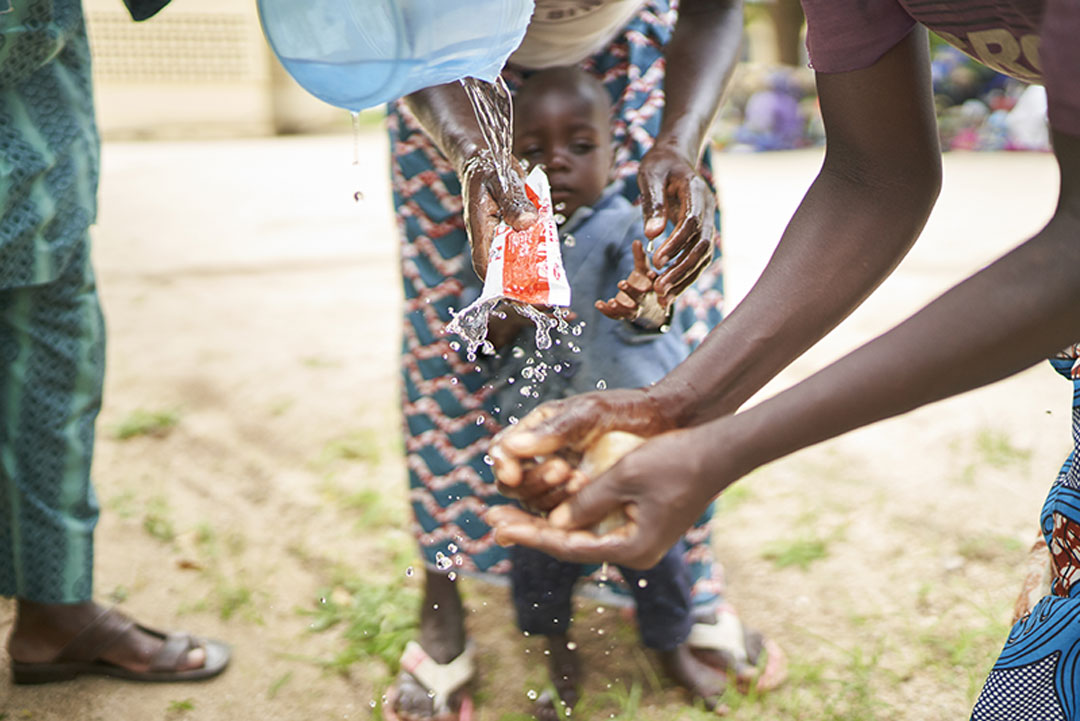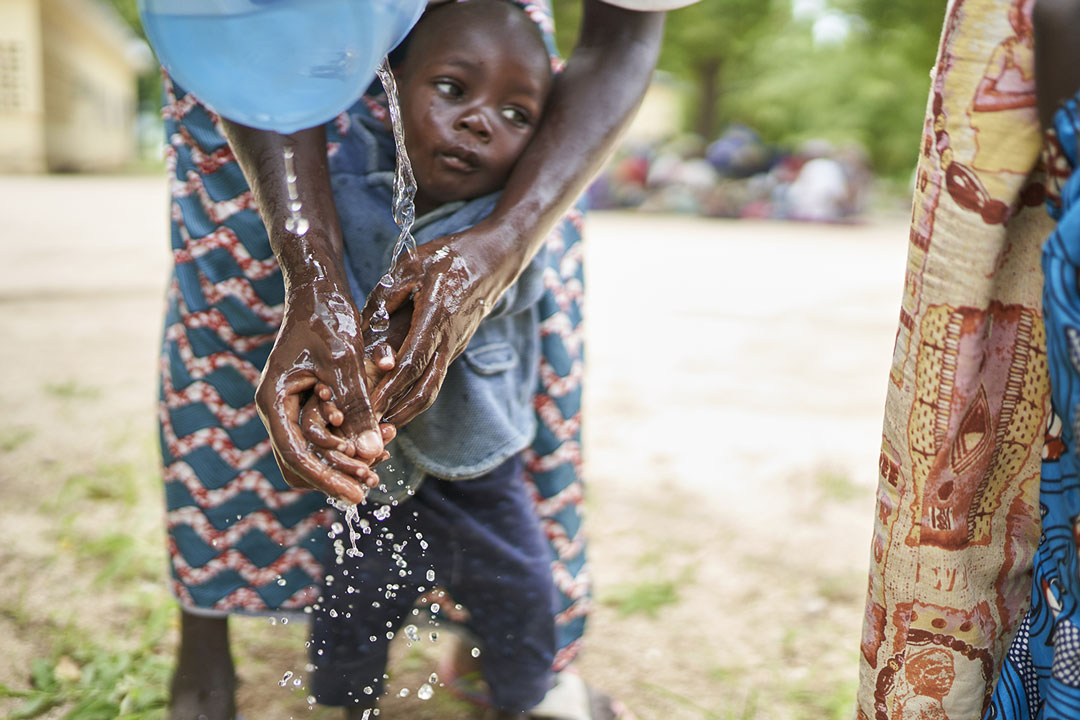How COVID-19 is placing increased pressure on water resources for farmers in Cameroon
In Cameroon’s Marua region, the pandemic means farmers are now faced with the double challenge of using what limited water resources they have to grow crops while saving lives through handwashing.
- 18 January 2021
- 2 min read
- by Tetsekela Anyiam-Osigwe

In 2019, residents across Marua’s community were given lessons on how to best use scarce water resources for sustainable agriculture. These informal classes took place in groups that included both male and female farmers, some of whom were refugees displaced by water scarcity, gaining new knowledge and skills to empower them to make better farming decisions.
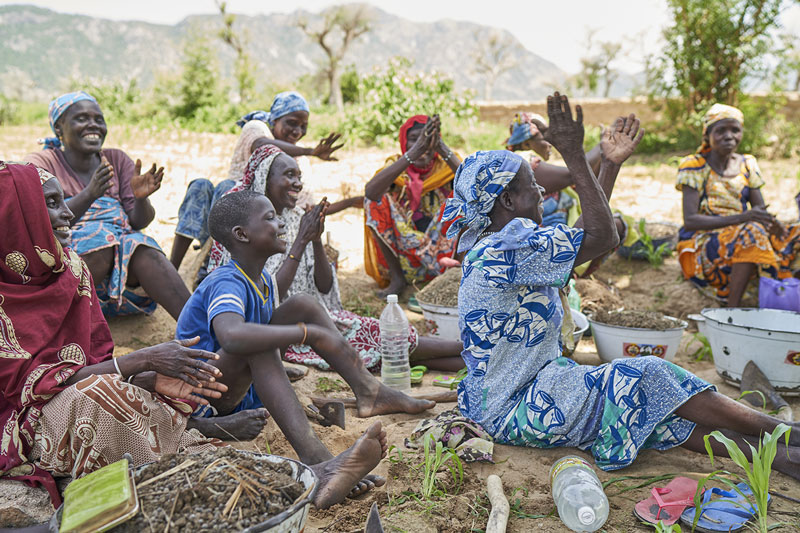
Gavi/2020/Christophe Da Silva
They learned about new ways to carry out agricultural best practices for successful crop cultivation, including which types of chemicals to use and which to avoid.
The pandemic in focus
Since then, the COVID-19 pandemic has placed even more pressure on Marua’s limited water resources because of the increased need for handwashing to prevent the virus from spreading across the community.
Handwashing as a lifesaver for the community
Handwashing with soap is one of the most effective ways to stop COVID-19 from spreading. This is why communities in Marua came together to promote handwashing with soap and water, to teach families about the importance of properly washing their hands in order to avoid catching and transmitting COVID-19.
More from Tetsekela Anyiam-Osigwe
Recommended for you




